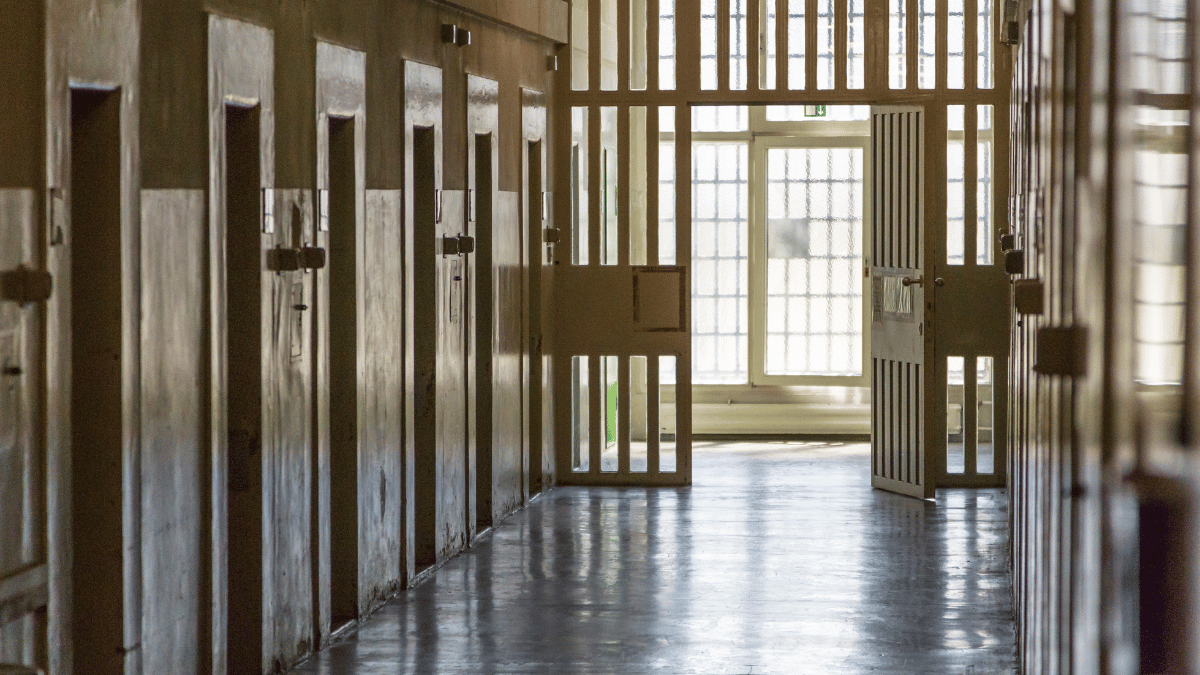Employees at Federal Correctional Complex Hazelton who are in good standing will receive a 25 percent pay increase — part of an effort to boost staff retention and promote facility safety.
Personnel at a Preston County prison will soon receive a 25 percent pay increase, following union protests over understaffing last year.
The Federal Bureau of Prisons and the United States Office of Personnel Management approved the pay increase Thursday as part of an effort to increase staff retention at the Federal Correctional Complex Hazelton.
Staffing issues at the federal prison gained attention in 2018 following the deaths of three inmates in a seven-month span, including the murder of an inmate serving a life sentence.
Leadership changes following the incident improved staffing levels at the facility, according to corrections officer Justin Tarovisky, who also serves as union president of the American Federation of Government Employees Local 420 chapter.
Tarovisky’s union represents more than 600 workers at the facility, from West Virginia, Maryland and Pennsylvania, he said.
But the departure of some members of the facility’s leadership, coupled with the fallout of the COVID-19 pandemic, exacerbated prior staffing issues to a new degree, Tarovisky said.
“Since that, we’ve drastically declined,” he said. In September, union representatives reported that more than 80 corrections officer positions were vacant.
Tarovisky said that understaffing in correctional facilities poses safety risks for current personnel.
“I mean, we’re a 24-hour operation. It’s not a job where you just leave at the end of the day, you go home, and you don’t have nobody there,” he said. “We have to have correctional officers at the facility to run a safe mission.”
To raise awareness about challenges to the facility, union workers lined a Monongalia County roadside last September, picketing with bright-colored signs demanding new hiring initiatives.
“We need hiring incentives to bring in new recruits,” Tarovisky said. “You have a lot of other law enforcement agencies within this country — whether it’s state police, whether it’s corrections in Pennsylvania — that … were offering higher incentives. So why would you want to come to Hazelton?”
Tarovisky said state officials were receptive to the union’s requests.
In November, Sen. Joe Manchin, D-W.Va., sent a letter to the Federal Bureau of Prisons (BOP) urging the organization’s approval of a 25 percent retention incentive for staff at the facility.
“FCC Hazelton faces a dangerous staffing shortage that, while challenging, could be improved by providing current employees with a much-deserved pay increase,” he wrote in the letter.
After the U.S. Department of Justice (DOJ) published a report in February that the BOP failed to prevent the deaths of 14 inmates at the West Virginia facility in just eight years — the second-highest number in the nation — Manchin renewed his calls for federal intervention.
Other allegations disclosed in a 2023 DOJ report included the falsification of documents from supervisory staff at the facility; the usage of racial slurs and punitive housing restrictions from workers; and even the assault of inmates by facility staff.
Manchin said that understaffing exacerbated dangerous conditions like these in the facility. Likewise, Sen. Shelley Moore Capito, R-W.Va., said that the 2023 DOJ findings suggested the facility was unable to provide a safe environment for inmates and workers.
Tarovisky credits calls from West Virginia’s senators, plus additional support from U.S. Rep. Alex Mooney, with pushing the pay increase forward.
“Unbelievable job, what they’ve done for the staff at Hazelton. This is what we’ve been asking for, and this is what they’ve been pressing on,” he said. “They put all politics aside to represent the people at FCC Hazelton.”
The pay raise will apply to all of the facility’s corrections officers who are currently in good standing. But it will also bump starting salaries at the facility up by 25 percent, which Tarovisky said will help make the facility more enticing in a competitive job market.
“That’s what’s so great about this,” he said. “Now, we can compete even higher with other agencies.”
Manchin applauded the new funding in a Thursday press release, adding that he hopes it will reduce safety risks in the prison.
“The facility has long suffered from severe staffing shortages, especially of correctional officers, that have resulted in a hostile environment for both employees and inmates,” he said. “This pay incentive is much-deserved for current employees and will help recruit new qualified officers and staff, which will promote safer conditions for employees and inmates.”
**Editor’s note: A previous version of this story incorrectly stated that allegations of falsified documents and staff abuse came from a February 2024 Department of Justice report. They came from a September 2023 report. The story has been updated with the correction.
